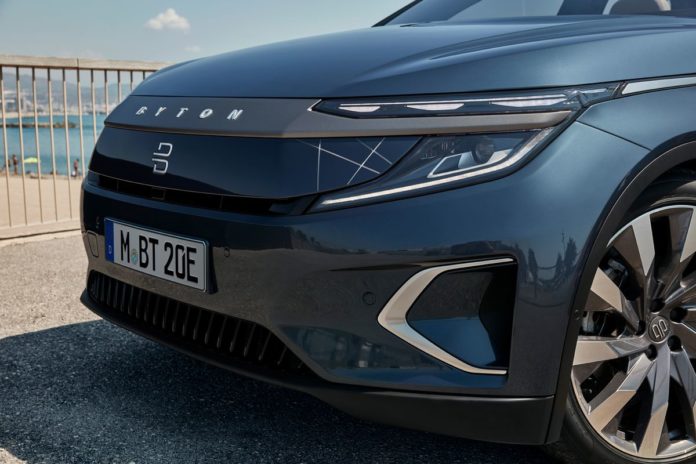
Chinese all-electric vehicle brand Byton is raising a series C round of financing at US$500 million from Chinese state-owned automotive manufacturer FAW Group and government-led industry investment funds after the start-up experienced a management shake-up and reported layoffs.
Byton already inked an investment agreement with FAW Group, and the due diligence was started in early May 2019. The electric vehicle (EV) start-up is also closing deals with other institutional investors, Byton co-founder and CEO Daniel Kirchert told Chinese online publication 36Kr.
The two-year-old start-up plans to immediately kick off its series D round upon the completion of the series C round. Proceeds of the series C round will be used to finance the research and development of its second and third SUV vehicles, said Kirchert.
Initially expected to be completed by the end of June, the delayed series C round had reportedly caused a liquidity crunch to the EV company. The company started a round of layoffs earlier this year to sack employees at a Shanghai-based marketing department and a few technical teams located in Silicon Valley, according to company employees cited by Chinese state-backed ThePaper.cn in early September.
The company’s chairman and co-founder Carsten Breitfeld also resigned earlier this year and joined Byton’s domestic rival Iconiq due to “trouble funding its planned expansion in the Chinese market, causing tensions inside the company,” German publication Manager Magazin reported in April 2019.
Against the headwinds of an executive departure and reported layoffs, the EV automaker showed off the final production version of its debut SUV model, “M-Byte SUV,” at the 2019 Frankfurt Motor Show on Tuesday. The company said that the debut model will be put into production at a newly-finished automotive plant in eastern China’s Nanjing city before the end of 2019.
The model is expected to enter into the market in the middle of 2020 — about half a year later than the original plan — before coming to the United States and Europe in 2021. The new SUV model, priced at about US$45,000, will offer over 200 miles of range per charge.
The mass production of the debut SUV model was delayed because Byton needs time to “polish the product,” said Kirchert. “The products released by other emerging EV companies have encountered many problems. We need to learn from their lessons and make our products right.”
Byton, which runs offices in China, the United States and Germany, is one of several largely Chinese-funded EV start-ups betting on the benefits of local production to compete with Tesla and other auto giants. The company, founded in 2017 and based in Nanjing, primarily develops EVs at an intelligent manufacturing base in China. The start-up also works on intelligent vehicles, autonomous driving, whole vehicle integration and other cutting-edge technologies in Silicon Valley, while its vehicle concept and design center is located in Munich.
The company closed US$500 million in a series B round from a group of investors including FAW Group, Chinese business parks developer Tus-Holdings, and Chinese battery manufacturer CATL in June 2018. The company also completed a US$200 million investment from investors including China’s Suning and Fullshare Holdings in August 2017.


